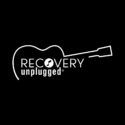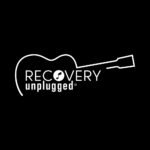Find Sober Roommates in Virginia To Support Your Recovery Journey

Who you decide to be your roommate is an important part of your recovery journey.
A sober roommate would be less likely to trigger a relapse because they aren’t displaying the same addictive behaviors you used to display. A sober roommate doesn’t drink alcohol or take drugs, which is the best kind of person to have in your life during your recovery journey. A relapse could set your recovery back months or even years and is statistically associated with homelessness and incarceration.[1]
Pulling a roommate from your existing networks can be challenging as they may not be sober. You’ll need to find a truly sober roommate using a different strategy. Here are several places to look to help you find a sober roommate in Virginia:
Find A Sober Roommate
Recovery Unplugged’s Alumni Network
No matter where you live or how far along in your recovery journey you are, you’ll always be part of our Alumni Network. Besides getting invites to special alumni events, our national network of coordinators checks in with you regularly to hear about your progress and encourage you. The frequency might change, but we still have some people who keep us updated for years!
The time you spend plugged into the RU community can offer you invaluable social connections, including finding someone nearby looking for a sober roommate. We have an entire alumni team that helps alumni connect on social media and share their recovery resources.
Connecting two of our alums is easy because we know they will be recovery assets rather than hindrances to each other.
Online Search
The internet is a great place to find a sober roommate, but you have to stay vigilant to find someone who will maintain high standards of sobriety. While social networking sites like Facebook are great for connecting with people, they aren’t made specifically for people on their recovery journey. There’s no easy way to filter for certain criteria important to finding a good sober roommate.
In 2016, the social networking site “mysoberroommate.com” was born. This is an online directory specifically for people looking to find a sober roommate. It’s for people who are looking to rent a room to someone else or are looking to rent a room personally. Fortunately, there is an easy way to make that distinction on the site. That means you will only see results from people offering what you want to find.
You can also discriminate with other search criteria such as:
- Age
- Gender
- Rent budget
- Desired location
- Smoking or non-smoking
- Length of current sobriety
- Whether or not you have a pet
Word of Mouth
You can tap into your personal networks to find a sober friend.
Make a couple of phone calls and post a message on social media to see if any of your friends are looking for a sober roommate as well. This method has the benefit of utilizing your pre-existing relationships. Depending on who responds, if you’ve known them for a while, you can anticipate, based on your shared history, what living with them will be like.
Don’t lower your standards, though, just because you don’t want to offend a friend. Your recovery journey is too important to jeopardize because you are worrying about someone else’s feelings.
Sober Living Homes
Sober living homes are transitional living environments for individuals recovering from substance abuse, offering a structured and supportive setting that bridges the gap between intensive treatment settings and independent living.
They are meant to provide independence and support simultaneously. A sober living home requires members to abstain from using drugs and alcohol, pay rent, do chores, attend democratic house meetings, show up to court dates, and sometimes even attend support groups outside the home like AA or NA.
In return, they can sleep in their bed and even hold down a job while they pursue their recovery outside the walls of the treatment center. It also comes with baked-in support for you as you pursue recovery.
Rather than finding a sober roommate, getting admitted to a sober facility will necessitate your roommates being sober. This method is only helpful for someone looking to rent a room for themselves rather than someone looking to rent a room to someone else.
Check out this statewide Virginia directory of sober living homes.
Non-Profit Organizations
If you live in Richmond, research the McShin Recovery Resource Foundation. It’s the only accredited non-profit recovery community organization (RCO) in Virginia. They use an authentic, peer-oriented social model program to help you figure out what it takes to recover daily.
The community you find here could be a great resource for finding a sober roommate. They can connect you with one of their sober living homes or even just any alumni who are looking for a sober roommate.
12 Step Programs

Groups like Alcoholics Anonymous (AA) and Narcotics Anonymous (NA) began decades ago, but the model is a proven success.
AA and NA are volunteers, peer-led support groups that are spiritual without being religious. Groups meet all over Virginia, and they read literature, discuss pertinent topics, and practice group affirmations. There are twelve steps that members are encouraged to follow, and upon completion, these steps should form a solid foundation for a lasting recovery.
Millions of people have found community in these groups they desperately need for a successful recovery journey. If you start attending a group, you could network with the other members to see if any of them are looking for a roommate.
- Check here for Virginia AA.
- Check here for Virginia NA.
Local Churches & Religious Organizations
Religious organizations and local churches are great places to look for sober roommates.
Generally, churches will champion the value of sober living. The doctrines and covenants which bind these people together generally include abstaining from drugs and alcohol. That means if you find somebody in a church also looking for a sober roommate, there is a good chance they already believe in the inherent value of sober living.
While some churches have their programs for addiction recovery, there are a few religious 12-step programs that have taken the 12 steps of AA and NA and justified them on explicitly religious grounds rather than just spiritual grounds.
One Christian 12-step program is Celebrate Recovery. Over 35,000 churches have hosted the program since 1991. You can use their group locator here.
Another Christian 12-step program is Re: Generation. While it’s mostly located in Texas, they have a virtual option you can access in Virginia.
If You’re Just Beginning Your Sober Journey, Start With Evidence-Based Drug and Alcohol Addiction Treatment
Don’t get discouraged. If you’re just beginning your sober journey, it might seem like you have an impossible amount of work ahead of you.
A drug addiction can shave 14-16 years off your life, and an alcohol addiction can shave 24-28 years off your life.[2][3] As you likely know, an untreated substance use disorder can wreak havoc on your personal, familial, and professional life.
If you need innovative addiction treatment, start with Recovery Unplugged. We are a team of addiction treatment specialists who believe the best therapy is couched in a context that speaks to your heart, mind, and soul. For us, music is that context. We use evidence-based treatment programs with innovative musical practices so you can wholeheartedly embrace more traditional therapies.
We believe hope and healing are possible. Ask our 8,600+ clients who’ve experienced over 3 million days of recovery what it’s like to be transformed.
What is the Meaning of a Sober House?
A sober house is a facility that requires its residents to practice sobriety, among other rules.
These are generally private facilities, so as long as you stay current on rent, you can stay there as long as you want. But you must also do chores, attend house meetings, make court dates, and possibly attend outside support groups.
There is often a house manager in sober living homes, but they may not be present on the premises at all times. Their role typically includes overseeing the facility and ensuring residents adhere to house rules, but their presence can vary depending on the specific sober living home.
How Do I Know if I Can Trust My Sober Roommate?
No matter how you find a prospective sober roommate, it’s important to know if you can trust them. Trust is built on repeated interactions, so if possible, try to meet with them one to several times to gauge their trustworthiness.
Do they smell like drugs or alcohol? Does it seem like they are clear-minded? Are their answers straightforward, or are they rambling? Do they seem nervous or at rest?
These are all good questions to bring to your first meeting. Whether you find a prospective roommate through personal networks or social networking, make sure you find time to meet them to build trust.
What Questions to Ask a Prospective Roommate to Judge Whether or Not They’re Sober
- (If the roommate is also in recovery) What was your reason for quitting?
- What value do you place on maintaining sobriety? Why?
- How do you cope with difficult situations?
- How often do you practice self-reflection?
- What’s the best version of you that you can imagine?
We take our music-focused treatment for addiction very seriously, so we are going to hold our content to the same precision standards. Recovery Unplugged’s editorial process involves our editing safeguard and our ideals. Read our Editorial Process.
Sources
[1] Goldman-Hasbun, J., Nosova, E., Kerr, T., Wood, E., & DeBeck, K. (2019). Homelessness and incarceration associated with relapse into stimulant and opioid use among youth who are street-involved in Vancouver, Canada. Drug and Alcohol Review, 38(4), 428–434. https://doi.org/10.1111/dar.12921
[2] Lewer, D., Jones, N. R., Hickman, M., Nielsen, S., & Degenhardt, L. (2020). Life expectancy of people who are dependent on opioids: A cohort study in New South Wales, Australia. Journal of Psychiatric Research, 130, 435–440. https://doi.org/10.1016/j.jpsychires.2020.08.013
[3] Westman, J., Wahlbeck, K., Laursen, T. M., Gissler, M., Nordentoft, M., Hällgren, J., Arffman, M., & Ösby, U. (2015). Mortality and life expectancy of people with alcohol use disorder in Denmark, Finland and Sweden. Acta Psychiatrica Scandinavica, 131(4), 297–306. https://doi.org/10.1111/acps.12330


